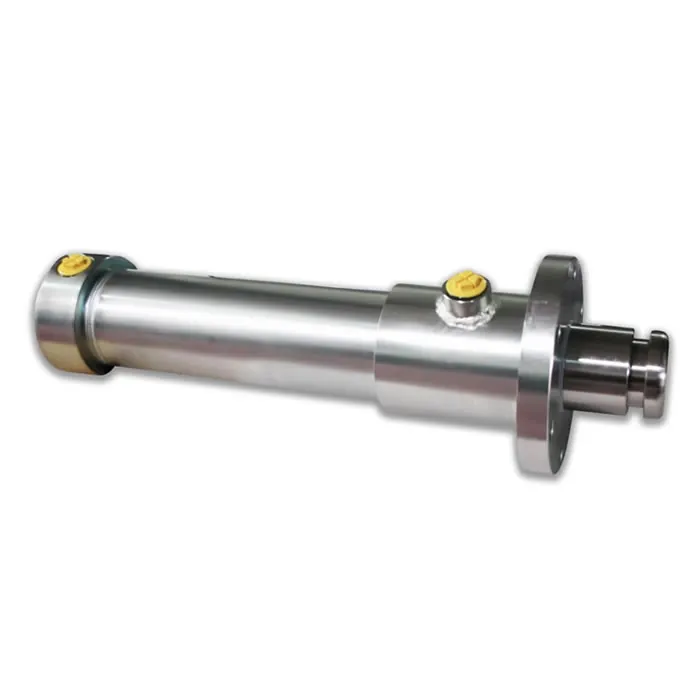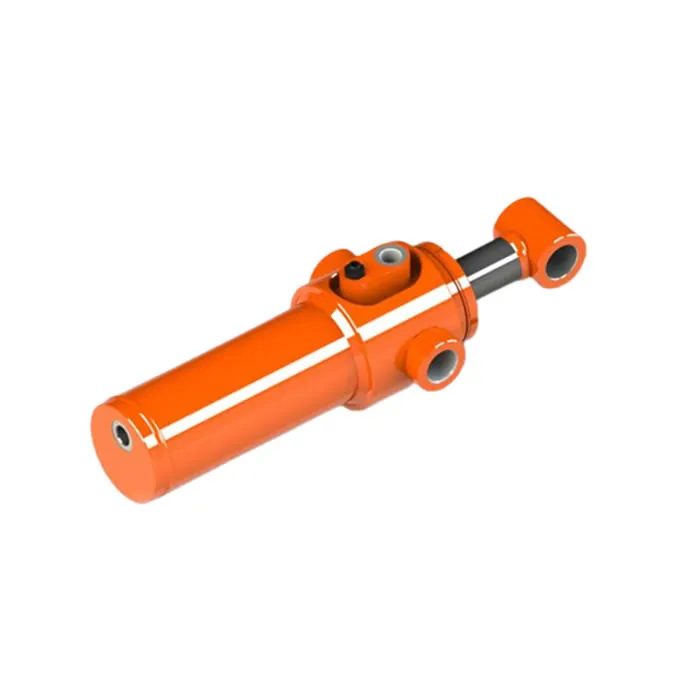Selecting the Right Material for Your Hydraulic Cylinder
Introduction:
hydraulic cylinders are essential components that transmit force and enable linear motion in various industries.
The performance and durability of these cylinders are significantly influenced by the materials chosen.
In this essay, we will explore the diverse range of materials used in hydraulic cylinders, their characteristics, and suitable applications.
Steel:
Steel is one of the most widely used materials for hydraulic cylinders. This is due to its strength and excellent durability.
Steel has the ability to withstand high pressures and heavy loads, making it primarily used in the construction and mining industries.
Moreover, steel is relatively cost-effective and easy to machine, making it a cost-efficient choice.
Aluminum:
Aluminum is known for being lightweight and corrosion-resistant. Due to these properties, aluminum is widely used in the aerospace and automotive
industries.
In hydraulic cylinders, aluminum provides reduced weight and faster response, enhancing maneuverability and efficiency.
Copper:
Copper is a material known for its excellent thermal conductivity and corrosion resistance.
Therefore, copper is useful in applications where high temperatures and corrosion are concerns.
For example, hydraulic cylinders made of copper can withstand high temperatures and corrosive environments,
making them suitable for steel refineries or marine industries.
Alloys:
Alloys are materials that combine the characteristics of various metals to enhance strength and corrosion resistance.
For instance, Stainless Steel offers excellent corrosion resistance, while titanium alloys are lightweight and possess high strength.
Alloys are a suitable choice for hydraulic cylinders used in extreme conditions, such as in the aerospace industry.
Plastics:
Plastics are lightweight and corrosion-resistant materials used in applications that require cost-effectiveness and low-noise operation.
Plastic hydraulic cylinders can be found in automobiles and household products, offering low power consumption and ease of maintenance.
Conclusion:
The choice of materials for hydraulic cylinders greatly impacts their performance and durability.
The diverse range of materials, including steel, aluminum, copper, alloys, and plastics,
each possess unique characteristics and Advantages, serving various industries.
Understanding this diversity and selecting the appropriate material allows for achieving excellent hydraulic cylinder performance.
Saivs brand
- Rexroth pressure relief valve DR6DP DR10DP DR10 DR20 DR30
- Low Noise Denison T6 Series Vane Pump Hydraulic Pump
- Parker T7B T7D T7E high pressure hydraulic vane pumps
- Counterbalance Valves CBIG
- T6ED high pressure T6 Denison double oil hydraulic pump
- DBET/DBETE6 Series Rexroth proportional relief valve
- Ms/Mse02 Poclain Hydraulic Motors
- Small Hydraulic Winch 10 Ton Ship and Deck Machinery Used
- High Quality Eaton Vickers V2010 V2020 Series Hydraulic Vane Double Pump Oil Rotary Pump
- Radial piston motors Hagglunds CB

